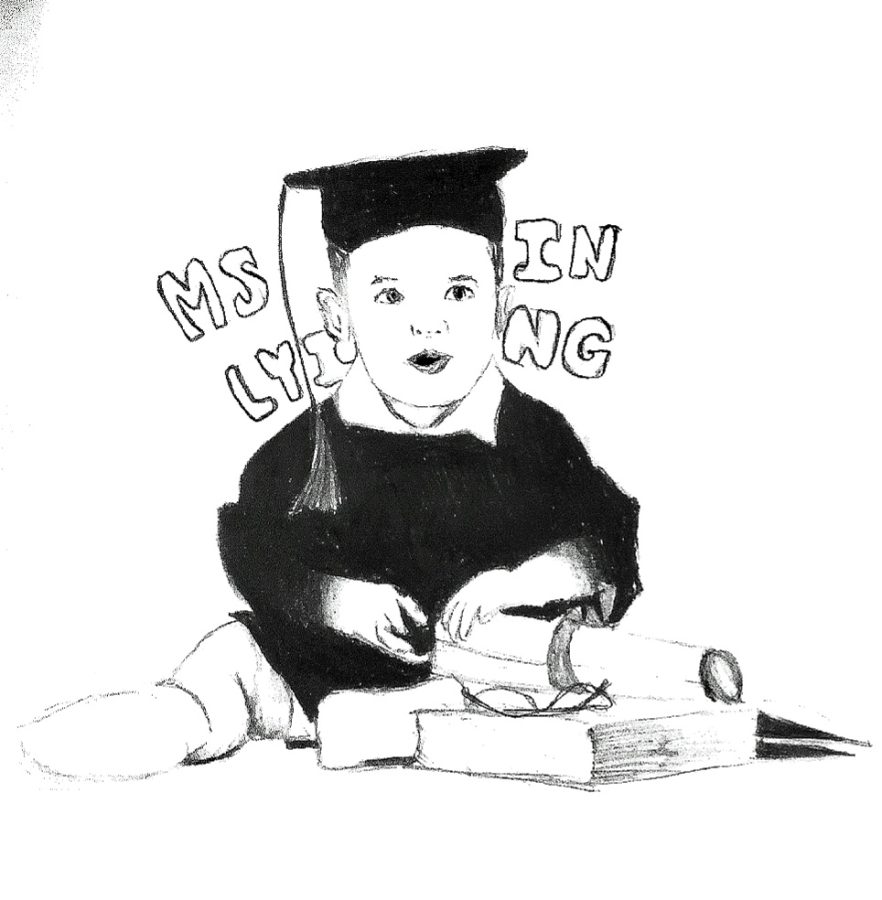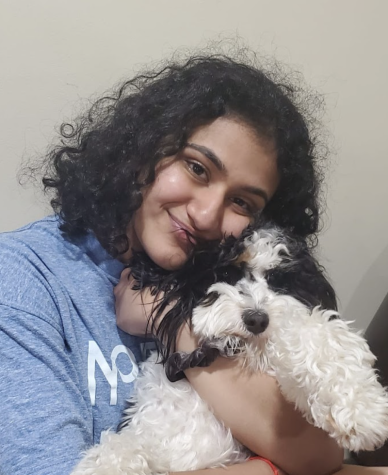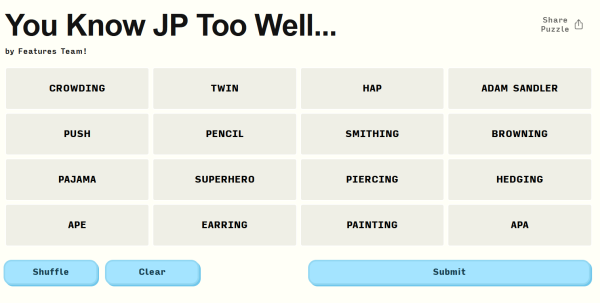Are We All Master Liars?
Congratulations on your degree!
April 17, 2023
“The food is absolutely delicious!”
Lying under the guise of compliments is something we’ve all done. These white lies–lying on a resume about work experience, or saying your phone died to justify not picking up a call–are everywhere we look. Characters like James Bond practically thrive on deception, since their lies can place them in a life-or-death scenario. Luckily, not all of us are secret agents, but we do lie without realizing it, and it is interesting to think about whether or not it’s possible to get by in today’s world without lying.
To answer that question, let’s investigate what compels us to lie. Children usually start lying at a shockingly young age, around 2-5 years old. While a toddler may not be lying to cover up grand theft auto, the habit could start in attempts to avoid punishment: “I swear, Mom, I didn’t break it!” Other times, we lie to protect ourselves from harm, like when a stranger was at the door while you were home alone. We also lie to protect ourselves from awkward social situations: “My parents are calling: I need to go.” Lastly, we lie to maintain privacy: “What? No, we aren’t throwing you a surprise birthday party! Oh, the decorations? They’re for my mother’s cousin’s dog’s birthday!” (If the secrecy of a birthday party is compromised, come up with a plausible lie beforehand. It’ll save you the embarrassment of not being able to pull up a picture of the previously mentioned dog.)
Of course, these are all situations where lying is accepted by society. But we also lie when it isn’t necessary for less-than-noble motivations.
Some people lie because the lie matters to them: the way they see it, it’s more fact than fiction. It is similar to wanting to “change” the truth: repeatedly lying to yourself helps block out the truth or even alter a memory that is painful or unwanted. Lastly, we have manipulation, when someone controls others’ knowledge by withholding critical information or outright fabricating the truth. Many of us may have guilt, fear, or regret after lying. But manipulators feel delighted when they lie, a surefire sign of their lack of moral compass.
Lying activates a “fight or flight” mechanism that causes anxiety, mainly because creating a lie is a longer process than telling the truth. First is the initial dilemma of moral transgression. Then, we recognize the truth, think about a lie that makes sense with the facts of our situation, and bury the truth. Finally, we see how the listener reacts to tweak our lie–which is really an “alibi” of sorts.
In short, we are all master criminals.
But how does it get this far? In other words, why do lies snowball?
Well, think about going into the ocean at the beach: the water’s cold at first, but you get used to it. You adapt.
Similarly, the brain adapts to dishonest behavior: the lies build on one another, growing taller than the Empire State Building. Not only does it get easier to lie, but repeatedly lying dulls our senses and makes us detached from our emotions when we do so.
Now that we know about lying, can we survive without it? If you lie, it poses moral problems, short-term physical effects, and long-term psychological effects–but if we don’t lie, we put ourselves in danger and have difficulty in our daily routines. Take the workplace as an example; toxic workplace environments are all too common. If even one person is a manipulator, chances are you’ll have to lie to protect yourself from being sabotaged. Furthermore, if liars get caught, they risk being alienated, as people hesitate to give liars second chances on the premise that they could lie again about anything. So, the only way we could live without lying is if no one lied, which is impossible considering the natural human tendency to respond to mistrust with untruth.
So, is it possible to not lie in today’s world? The short answer is no. What can be determined is the extent to which lying is acceptable, whether by society’s standards or your own. Societal norms and the penalties for lying can keep us honest. Before you lie, I urge you to think about why you are about to lie, as well as the effect it may have on you and others. Or you could fine-tune your deceptive abilities to become the next 007. There’s no harm in dreaming big!








































